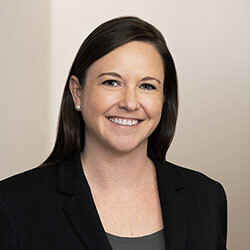In a cautionary decision that marks California's first published opinion on the misuse of generative artificial intelligence in legal filings, the Court of Appeal affirmed summary judgment for defendants in a routine employment dispute but used the case to address an extraordinary issue. In Noland v. Land of the Free, LP, the court discovered that nearly every quoted authority in the plaintiff's appellate briefs were fabricated. Entire passages were falsely attributed to published opinions, many cited cases did not discuss the referenced issues, and several authorities did not exist at all. According to the opinion, plaintiff's counsel relied on generative AI tools to draft briefs without verifying citations or reading the underlying cases.
While the merits of the appeal presented no novel questions of law, the court elected to publish the decision "as a warning." It emphasized that no brief, motion, or pleading should contain citations that counsel has not personally reviewed and verified, regardless of whether they originate from AI or any other source. Finding a violation of counsel's duty to both client and court, the panel imposed monetary sanctions, ordered counsel to provide the opinion to his client, and directed the clerk to forward the opinion to the State Bar.
AI-Fabricated Citations
In its published opinion, the California Court of Appeal detailed the extraordinary extent to which plaintiff's counsel relied on fabricated legal authority generated by artificial intelligence. Nearly every quoted passage in appellant's opening brief, and many in the reply brief, were fictitious. Although most of the cases cited were real, the purported quotations did not appear anywhere within them. Several cited cases did not address the referenced legal issues, and a few authorities did not exist at all.
The court illustrated its findings with multiple examples. The appellant's brief quoted language allegedly from Schimmel v. Levin (2011) 195 Cal.App.4th 81 concerning the purpose of Code of Civil Procedure section 437c(f)(2), but the cited language was entirely invented. Similar false attributions appeared for several other case authorities included in the brief. In addition, the brief mentioned a non-existent federal case.
The court determined that 21 of the 23 case quotations in the opening brief were fabricated, with additional false citations in the reply brief. It described the filings as "peppered with inaccurate citations that do not support the propositions for which they are cited."
Ordinarily, the submission of such briefs, replete with nonexistent authority, would justify striking the brief or dismissing the appeal outright. In re Marriage of Deal, 80 Cal.App.5th 71 (2022). However, finding no evidence that the plaintiff herself was aware of her counsel's conduct, and noting that the defendants had addressed the issues on the merits, the court proceeded to decide the appeal.
Court Imposes Sanctions for Frivolous Appeal and AI-Generated Fabrications
Before oral argument, the Court of Appeal issued an Order to Show Cause directing plaintiff's counsel to explain why he should not be sanctioned for filing appellate briefs filled with fabricated quotations and citations. The court warned that sanctions could include attorney's fees and costs payable to the opposing party as well as monetary penalty to the court clerk.
In his written response, counsel admitted that he had used generative AI tools, including Chat GPT, to "enhance" his appellate briefs and that he failed to verify the resulting citations. He claimed he was unaware that AI could "hallucinate" legal authorities, expressed remorse, and stated he had since educated himself on the proper use of AI. Plaintiff's counsel maintained that the appeal was not frivolous, arguing that the briefs contained "meritorious arguments" supported by the record, and asked to amend his filings rather than face sanctions. At oral argument, he conceded he had not read the briefs before filing them.
The court rejected counsel's request to revise the briefs, finding monetary sanctions were warranted under the Code of Civil Procedure sections 907 and 128.7, as well as California Rules of Court 8.276. These provisions authorize sanctions where an appeal is frivolous or unreasonably violates appellate procedure, such as by including false citations or unsupported legal propositions.
“To determine whether an appeal is frivolous, we apply both a subjective standard, examining the motives of appellant and its counsel, and an objective standard, analyzing the merits of the appeal." In re Marriage of Flaherty (1982) 31 Cal.3d 637, 649–650. The court here concluded that plaintiff counsel's conduct met both standards. Objectively, the appeal rested on "negligible legal foundation." Subjectively, counsel's reliance on unverified AI-generated authority demonstrated a failure to make a reasonable inquiry into the validity of his citations.
The opinion surveyed a growing body of federal and state decisions addressing AI-generated "hallucinations" in court filings, noting that such misconduct has become "far too common." In recent cases- including Powhatan County School Board v. Skinger (E.D. Va. 2025), Garner v. Kadince, Inc. (Utah Ct. App. 2025), and Mata v. Aviuance, Inc. (S.D.N.Y. 2023)- courts acknowledged that AI often produces fake case citations. The California appellate court agreed with his emerging consensus, declaring that "a fake opinion is not existing law and reliance on such authority is an abuse of the adversary system."
The court emphasized that attorneys have a non-delegable duty to personally read and verify every authority they cite - a duty that cannot be outsourced to law clerks, interns, or technology. It noted that the danger of AI hallucinations are widely reported and that the State Bar of California had issued guidance on responsible AI use in November 2023, warning that AI outputs "may include information that is false, inaccurate, or biased."
Rejecting counsel's argument that the fabricated citations were "isolated." The court found the errors pervasive and the appeal frivolous, concluding that the conduct "unreasonably violates the Rules of Court" by failing to support each legal point with authentic authority.
Court Imposes $10,000 Sanction and Issues Warning to the Legal Profession
Finding that plaintiff counsel's conduct wasted judicial resources and undermined confidence in the appellate process, the California Court of Appeal imposed monetary sanctions of $10,000 on the plaintiff's counsel for filing briefs "replete with fabricated legal authority."
The court explained that sanctions may be awarded either to compensate a respondent for defending against a frivolous appeal or to the court itself to offset the burden placed on the judicial system and taxpayers. Citing Finnie v. Town of Tiburon (1988) 199 Cal.App.3d 1 and Kleveland v. Siegel & Wolensky, LLP (2013) 215 Cal.App.4th 534, the justices emphasized that frivolous appeals divert attention from legitimate cases and waste public resources.
Because plaintiff's counsel fabricated citations required the justices to expend "excessive time" verifying nonexistent authorities and independently researching the law, the court determined that sanctions payable to the clerk of the court were appropriate. The $10,000 penalty was set at a "conservative" level considering counsel's admission, remorse, had claimed lack of intent to deceive.
The court declined to award attorney's fees to respondents, noting they did not detect the fabricated citations and failed to submit documentation of their costs. However, the panel ordered plaintiff's counsel to serve a copy of the opinion on his client and directed the clerk to forward a copy to the State Bar of California for further review.
In closing, the court reflected on the broader implications of AI misuse, calling the term "hallucination" a "particularly apt word to describe the darker consequence of AI." It warned when artificial intelligence invents facts or law, and lawyers repeat those inventions to a court, the integrity of the judicial process is at risk. The opinion concluded with a clear admonition, "There is no room in our court system for the submission of fake, hallucinated court citations, facts, or law. And it is entirely preventable by competent counsel who do their jobs properly and competently."
Conclusion
The Noland v. Land of the Free, L.P. opinion stands as California's first published appellate decision addressing the misuse of generative AI in legal briefing, and it sends a clear message. While AI tools can enhance efficiency and research, they cannot replace the professional judgment, diligence, and ethical obligations of licensed attorneys.
The court's measured but firm response, imposing a $10,000 sanction, referring counsel to the State Bar, and ordering the opinion's publication, signals that California's judiciary intends to hold lawyers accountable for the authenticity and accuracy of their filings, regardless of technological intermediaries. The opinion also reinforces a fundamental truth that every citation, quotation, and legal assertion submitted to a court must be personally verified by the attorney of record.
More broadly, the decision reflects a growing national consensus that AI-generated "hallucinations" pose a serious risk to judicial integrity. Courts across jurisdictions are aligning on a simple but essential principle- technology may assist in advocacy, but it can never assume the lawyer's duty of competence, candor, or verification.
Key Takeaways for Attorneys
- Verification is non-negotiable. Every quotation and citation in any document submitted to the court must be personally read and confirmed by counsel. Reliance on AI summaries or outputs without verification constitutes a breach of the duty of competence and candor to the court.
- AI tools require human oversight. Generative AI can assist in drafting, research, or idea generation, but it cannot replace an attorney's professional responsibility.
- Ethical duties extend to technology use. The State Bar of California's 2023 Practical Guide for the Use of Generative Artificial Intelligence in the Practice of Law explicitly warns that lawyers must "critically review, validate, and correct" AI outputs to detect false or biased results. Failing to do so can constitute professional misconduct.
- Sanctions can be both financial and professional. The $10,000 sanction in Noland, coupled with referral to the State Bar, demonstrates that courts will impose tangible penalties for AI misuse, even absent malicious intent.
- Judicial integrity is a shared responsibility. The decision concludes with a powerful reminder. The justice system depends on the honesty of counsel. As technology evolves, so must vigilance. The duty of candor- to clients, courts and the law, remains unchanged.


